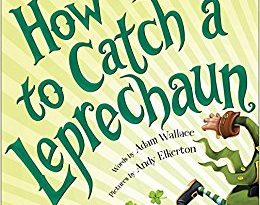THE ROLES OF THE TEACHER IN THE FL CLASS.
According to Nunan (1989), “role” refers to the part that learners and teachers are expected to play in carrying out learning tasks as well as the social and interpersonal relationships between the participants. Richard and Rodgers (1986) note that the teacher´s roles are related to some issues:
- The type of functions teachers are expected to fulfil;
- The degree of control the teacher has over how learning takes place;
- The degree to which the teacher is responsible for content.
In recent years and under the influence of the communicative approach, the roles of both teachers and learners have changed considerably. Obviously, these roles are complementary and may change from one activity to another or within the different stages of an activity.
Breen and Candlin (1980) suggest that the teacher has three principal roles in the context of a communicative classroom:
- Facilitator of the communicative process;
- Participant;
- Observer and learner.
Due to the relevance of humanistic theories, “learner-centred” approaches have gained momentum to a great extent. This means that the learners´ needs and experiences become central to the educational process. In this context, the students´ experiences and not the performance of the teacher are at the heart of the FL classroom. Therefore, the teacher is not seen as the controller and transmitter of knowledge; but rather, the role of facilitator of learning is essential to promote communication amongst learners and autonomous learning. However, the role of facilitator is a broad term that can be specified into more precise terms or secondary roles:
Organiser: This is one of the most important roles performed by teachers, and consists on organising students to carry out various activities, giving them the necessary information to succeed and grouping them according to the needs of the task. Before getting students to face an activity, we must ensure that they understand what they are asked to do, and also that they are motivated and engaged. Thus, providing them with the adequate instructions through demonstrations and explanations and fixing the linguistic demands to their linguistic competence is vital to define adequacy of activities. In this sense, the FL teacher should also assume the role of needs analyst, determining and responding to learner language needs and preferences.
Assessor: Performing as an assessor implies offering feedback and correction and grading the level of difficulty within a task. As we know, students expect from teachers clear indications of their degree of success and whether they are doing things right or not. In this sense, it is also important that our students know what we are going to assess and how we intend to do it; in other words, they should have a clear idea on the criteria for success in each stage of the task.
Prompter: When our students are immersed in a communicative activity and they need help to avoid a breakdown in communication, we may suggest and exemplify instead of giving them the answer and taking the initiative. Similarly, we can take advantage of the different linguistic resources available to students, so that they develop their plurilingual competence.
Group process manager and classroom manager: If we understand the FL class as experiential learning and communication process, we have to assume less teacher-centred management and foster students´ interaction. The importance of group dynamics in plurilingual and communicative experiences is obvious; therefore, the FL teacher has to motivate them to use the language with their peers. This involves grouping students according to levels (homogeneous or heterogeneous groups) and participating actively in the activity as a co-communicator, so that we can stimulate learners, present new language and give clarifying examples without taking the initiative. Besides, the teacher is responsible for grouping activities into coherent lessons. This also includes deciding on our own role and degree of participation within each activity and creating the optimal condition for learning, providing a free-anxious atmosphere.
Observer: Observing students´ performances is essential to measure the extent to which they have understood the activity and the level of development of the objectives involved, particularly in communicative activities. Nevertheless, teachers have to be careful not to be too intrusive and draw attention to themselves. Similarly, we may state that this role is parallel to others, since we need to be aware of the effects of our actions and students´ reactions in every stage of the class, whether we are presenting new language or explaining an activity.
Language instructor: In many occasions, we may have to perform the familiar role of language instructor, presenting new language or exercising direct control over the learners´ performance, evaluating, and the like.
In only one of these roles, then, is the teacher the traditional dominator of the classroom interaction, which is a characteristic of student-centred instruction. This fact is significant not only for methodological reasons, but also, for its effect on human relationships within the classroom and also on the view students have of the English lessons, which they regard not as a place for listening to the teacher but rather as a place for interaction and fun.
Notwithstanding, as we have already seen, the FL teacher cannot perform in isolation; rather we must assume that the roles we adopt in the classroom must be coherent with the methodological guidelines from the teaching teams. The concepts of co-operation and coordination are indispensable, as teachers are no longer seen as individuals who act according to their didactic conceptions; on the other hand, schools tend to offer a coherence educational response.
In the case of FL teachers, assuming that we must be a part of a group of teachers, not only FL ones, it is crucial to provide students with the necessary resources to communicate in the FL and develop their competences in all stages of learning. In fact, the challenges of modern FL teaching, developing communicative and plurilingual and pluricultural competences or taking advantage of ICT amongst others, require that schools provide a common response in all levels of infant and primary education; otherwise our results will not match the demands of our modern European society.
Bibliography:
- Breen, M. and Candlin, C. “The Essentials of a Communicative Curriculum in Language Teaching”. Applied Linguistics. 1980.
- Nunan, D. “Designing tasks for the communicative classroom”. Cambridge U.P. 1989.
Video by: TEFL & TESOL Courses – ITTT



